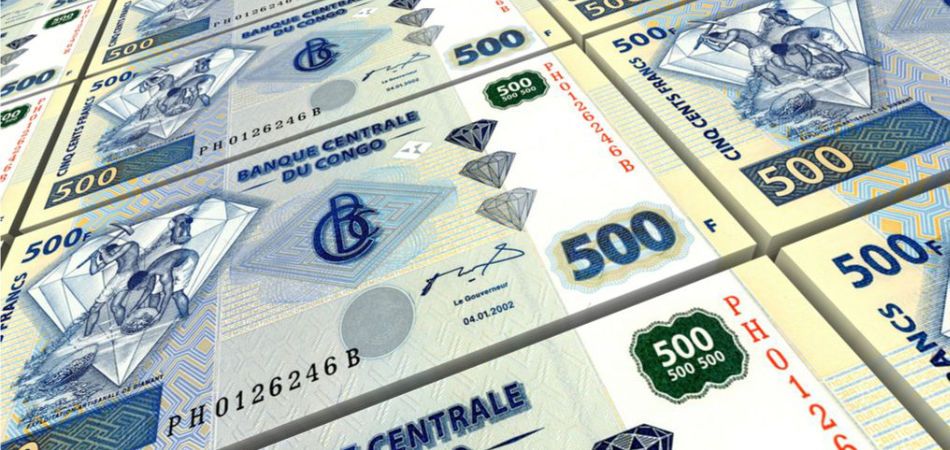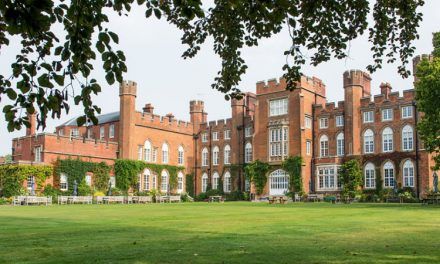
Gabrielle Compton was Called to the Bar in 2016 and practises criminal law at Lamb Building. She is also one of the first British barristers who is dual qualified in the Democratic Republic of Congo.
The Democratic Republic of Congo (DRC), formerly Zaïre, is a country known as a victim of corruption. The country has been a hub for civil war and pillaged for its natural resources by both neighbours and the international community. Since its independence from Belgium 60 years ago, establishing the rule of law has been awash with chaos, allowing it to be contaminated with corruption. However, the attitude is changing; there is now some light in Africa’s ‘heart of darkness’.
In the late eighties, work took my father, an English man, to the DRC where he met and married my mother, a Congolese woman. I have always been very aware of my dual heritage and when choosing a career I aspired to do something that not only makes a difference but ties both of my cultures together.
I was Called to the Bar by the Middle Temple in November 2016. Two years later, I became legal counsel in the DRC. In England and Wales I practise at the criminal bar and, in the DRC, I practice civil, commercial and criminal law. My instructions vary from advising local government on foreign investment to assisting private landowners from people applying ‘tribal law’ to take over the land. Overall, my experiences with the legal process have been positive. As in England and Wales, the system is underfunded, and there is always room for improvement. Yet, in the DRC, there are still undertones of corruption in practice. These undertones are silent and are limited not only to the passing of ‘brown envelopes’, but questionable actions within the system, including the appointments of particular judges. The DRC’s history of a ‘game of thrones’ has led to an ever-changing constitution. This turbulence has inevitably given venality the chance to escalate.
The DRC was first inhabited by Pygmies, locally known as the ‘Batwa’, who predominantly lived on the outskirts of the Congolian rainforest. In approximately the 15th Century BC, the ‘Bantus’, an indigenous people, who originated in now south-eastern Nigeria, migrated to the DRC, pushing the Pygmies to flee deep into the rainforest. The ‘Bantus’ founded prosperous Kingdoms and created their customary laws which were respected and most importantly upheld over millennia. It was the declaration of the DRC as a ‘free state’ in the late 1800’s which inaugurated instability.
The ‘Congo Free State’ became the personal property of King Leopold II of Belgium, infamously known for enslaving the Congolese and severing the hands of those that did not meet their daily rubber farming quota. During this time, the DRC was governed by the Charte de l’État indépendent du Congo which acted as its constitution. In 1908, the DRC became an extension of Belgium where another colonial charter superseded the ‘Belgian Congo’ as its rule of law. After a mass movement, the country finally received its independence on Thursday 30 June 1960. During its changeover, the state used La Loi Fondamentale du 19 Mai 1960, a transitional constitution which was drawn up by Tribal Chiefs and the Belgian government.
In 1965, Mobutu Sese Seko staged a coup d’État overthrowing Congo’s first President, Joseph Kasa-vubu. History remembers Mobutu as a flamboyant ruler and dictator who re-named the country ‘Zaïre’. This era was governed by La Constitution 24 Juin 1967 until the mid-90’s when the first of two deadly civil wars began. Laurent Désiré Kabila toppled Mobutu in 1996 and was assassinated by his bodyguard a year later. His son, Joseph Kabila, was positioned as the head of state where he remained until 2019. From 1997 to 2003 the DRC was governed by Le Décret-Loi Constitutionnel n°003 du 27 Mai 1997. The civil wars resolved, and a new constitution was accepted in 2006, La Constitution du 18 Février 2006. Although there is still some corruption, it is with this stability that the country is blossoming and affirmative steps are being taken.
The new President, Felix Tshisekedi, has campaigned for the eradication of corruption, and this attitude is spreading. New magistrates tasked with processing files linked to suspicions of corruption have been appointed. In April 2020, Vital Kamerhe, the President’s Chief of Staff, was arrested for misappropriation of public funds. Holding authoritative figures accountable for corruption is one of many bold moves the legal system is taking, in order to uphold the constitution.
With its constitution just shy of 15 years old the DRC is still in its genesis and exterminating corruption will prove to be the nation’s critical rite. Nonetheless, as I stated at the start, a light begins to shine in Africa’s ‘heart of darkness’.



